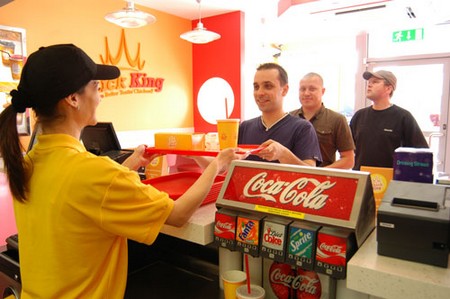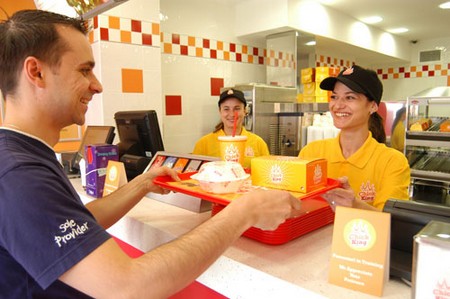Setting up a franchise needs not only the same planning and attention to detail as any new business venture, but has important additional elements since, in effect, not one but two business ideas are on trial.
First is the basic business idea for providing a product or service which has to be market tested. In addition, there is the development of a format for ‘cloning’ the business through a host of independently owned franchised outlets.
There are three principal ways a new franchise can start. First, there are imported franchises, often from the USA, which have usually been very successful there. Well-known examples are the fast food franchises such as Kentucky Fried Chicken, Pizza Hut and Burger King. Other franchises, such as TNT and the recently arrived Jenny Craig Weight Loss Centre franchise from Australia, show that the USA does not have a total monopoly here.

Of course, just because a franchise was successful elsewhere does not guarantee success in Britain, as the imported US ice cream franchises of a few years back showed.
Second, there are the large company divestment franchises where established companies decide to franchise a part of their activities. Good examples here are Holland and Barrett, Sketchley, Sperrings, and the Co-operative Wholesale Society’s Late Late Supershops. The Abbey National Building Society has plans to franchise its Cornerstone estate agency chain next year.
Perhaps the most exciting and challenging source of new franchises is what may be called the entrepreneurial franchise. Here an individual with a franchise idea starts from scratch, attempting to develop the original notion into a full-blown franchise chain.
It starts usually as a small business itself, testing and developing the product/service, and is built into a franchise package to sell to others. These are the most risky franchises usually, and failure may result because of the omission of certain steps in developing the franchise soundly.
Step one is obviously to have the basic product or service itself fully tested, marketed and competitively priced. Then comes the development of the back-up services needed for a franchise – the lines of supply and delivery, the administrative support and financial control systems for a multi-outlet business.
At this pilot stage, several key questions have to be settled-For instance, what kind of sites are needed? Does it need high street visibility, or can it flourish in secondary sites or, alternatively, could it be run from home or a mobile outlet? A franchise, in other words, needs to be fully proved before rushing out and recruiting franchisees.
Entrepreneurs are renowned for their hearty dislike of paper work but a franchise needs pinning down on paper. Careful paper work systems are an essential part of the package for franchisees. They have to reproduce the business in all its essential details if they are to succeed.
Getting the first outlet up and running does not prove the franchise adequately. A franchise runs on multiple outlets in different locations and under varying conditions with different staff.
A second outlet and preferably several further outlets set up in different geographical locations enable other key problems to be solved. Local property markets, for instance, can vary enormously. Staff recruitment and training have to be standardised.
In short, the budding franchisor has to test whether the business can be run at a distance without the direct supervision of the originating entrepreneur.
Methods and techniques evolved in the early outlets have to be passed on to franchisees later. This requires expertise, and a wise franchisor seeks help. The British Franchise Association, for example, offers help and associate membership to developing franchises. Later, full membership can be a useful source of contacts in the industry and may increase credibility when recruiting franchisees.

Marketing is important in franchising. Customer recognition and visibility are crucial. A well designed, distinctive and original logo and livery, which describe the business and give it a highly positive, instantly recognisable image are crucial.
A scale of fees needs to be developed for purposes of franchise flotation. These include a once-and-for-all licence fee for use of the trade name, an ongoing service fee related to levels of sales turnover plus, possibly, a mark-up on any supplies.
The cost of business premises, fitting-out, equipment, vehicles, working capital, etc all need to be calculated so that potential franchisees know the financial requirements of buying into the franchise.